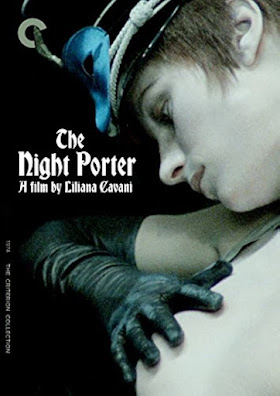Liliana Cavani – The Night Porter (1974)
I wondered what I could write about two people who are “strangers” to each other, yet share a common past. An ugly and horrific past. One was subordinate. The other held power. What are the odds that they would meet again—and would they even recognize each other? One way or another, in Liliana Cavani’s The Night Porter, they meet again. A man and a woman. Lucia, a former concentration camp prisoner, and Max, the former camp commandant.
The film feels like a long, dark dream in its weightlessness—
a feverish delirium trying desperately to change its nature.
I couldn't help but think of New Order’s Bizarre Love Triangle,
though in this case, there are only two protagonists.
When their eyes meet at the reception desk of Hotel Zur Oper, flashbacks from the past begin to rise slowly to the surface.
After the initial shock and what follows, one begins to contemplate the dynamic between Lucia and Max. They become increasingly entangled with one another. Others at the hotel begin to take notice, too.
This isn't just any hotel. Max’s friends are unrepentant men of the Third Reich, and they do not approve of what’s unfolding.
Gradually, and inevitably, the atmosphere at the hotel begins to tighten.
An impressive and captivating film, both thematically and psychologically.
It would be all too easy to label the undercurrents of sadomasochism as the film’s sole theme.
Another, perhaps just as obvious but far more daring interpretation would be this:
that they truly did fall in love...
Dirk Bogarde once said that Cavani had sent him the script, including a scene that would later become the foundation of the entire film.
Bogarde himself mentioned that the relationship between Max and Lucia was, in fact, strongly grounded in reality.
Dirk Bogarde is unbelievably brilliant in the role of Max.
He’s the kind of actor who can raise a single eyebrow and get his message across.
A multifaceted performer, even when his face barely moves.
Charlotte Rampling follows close behind. At times, she’s like a cornered wild animal—at others, like a purring house cat.

Comments
Post a Comment